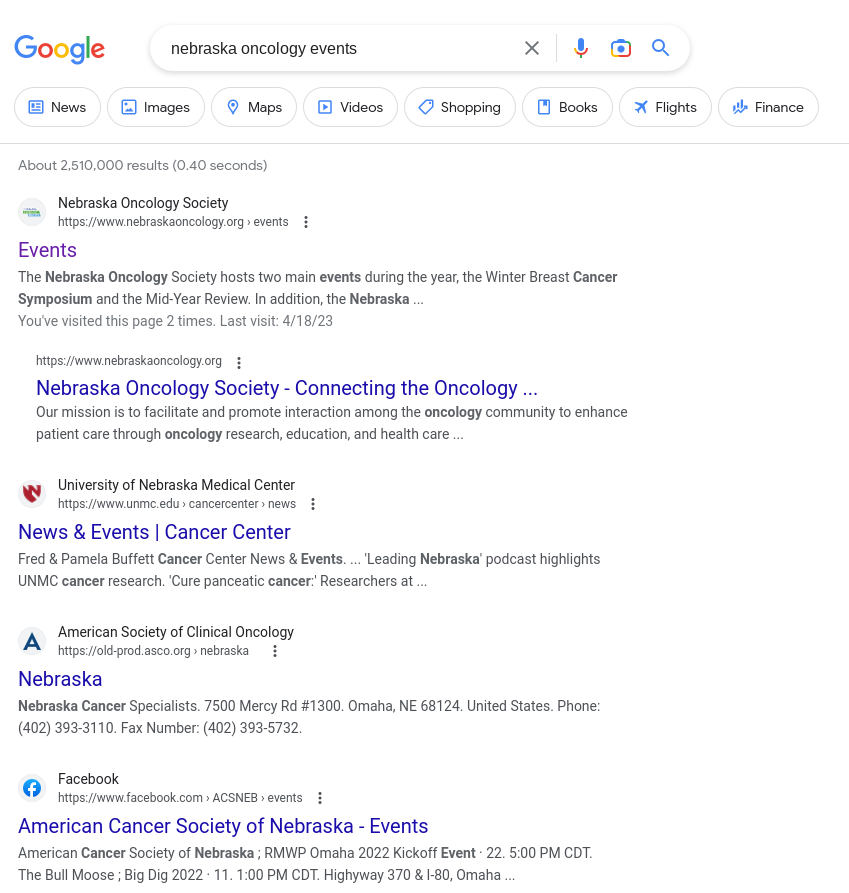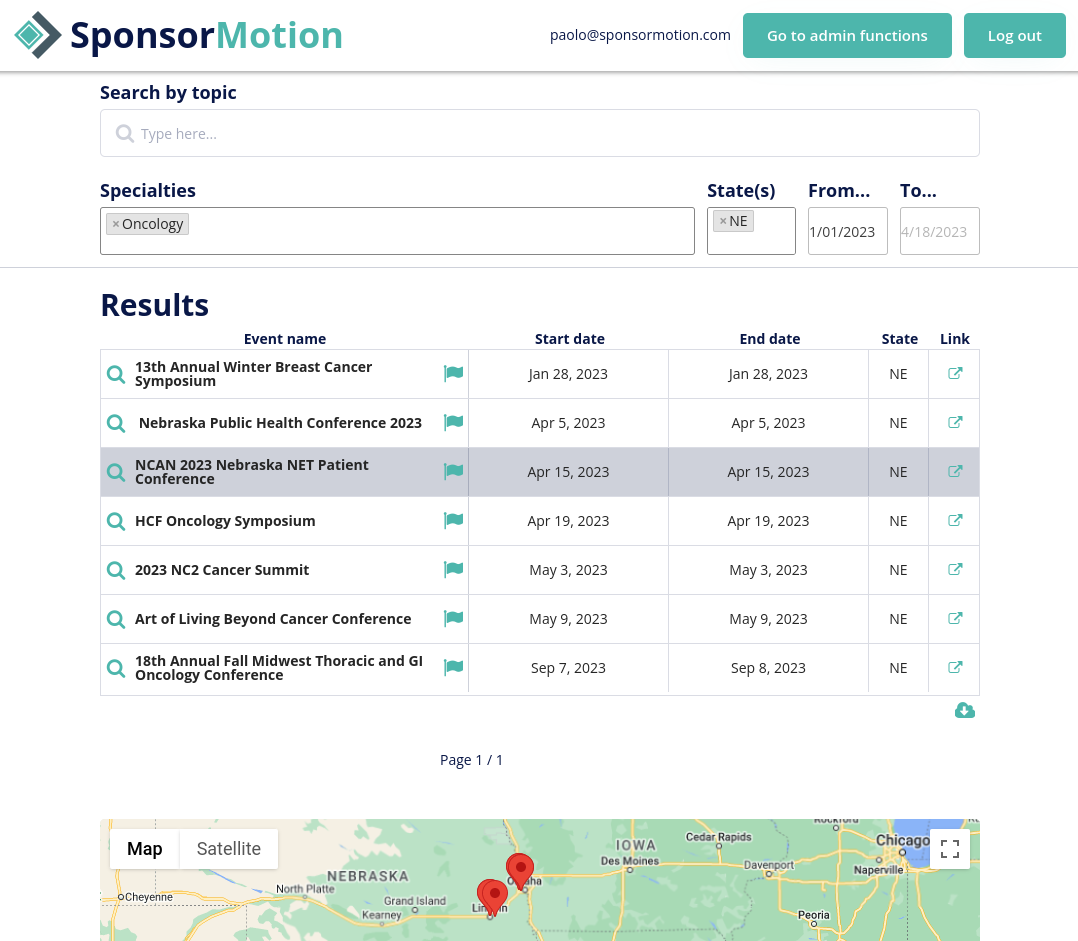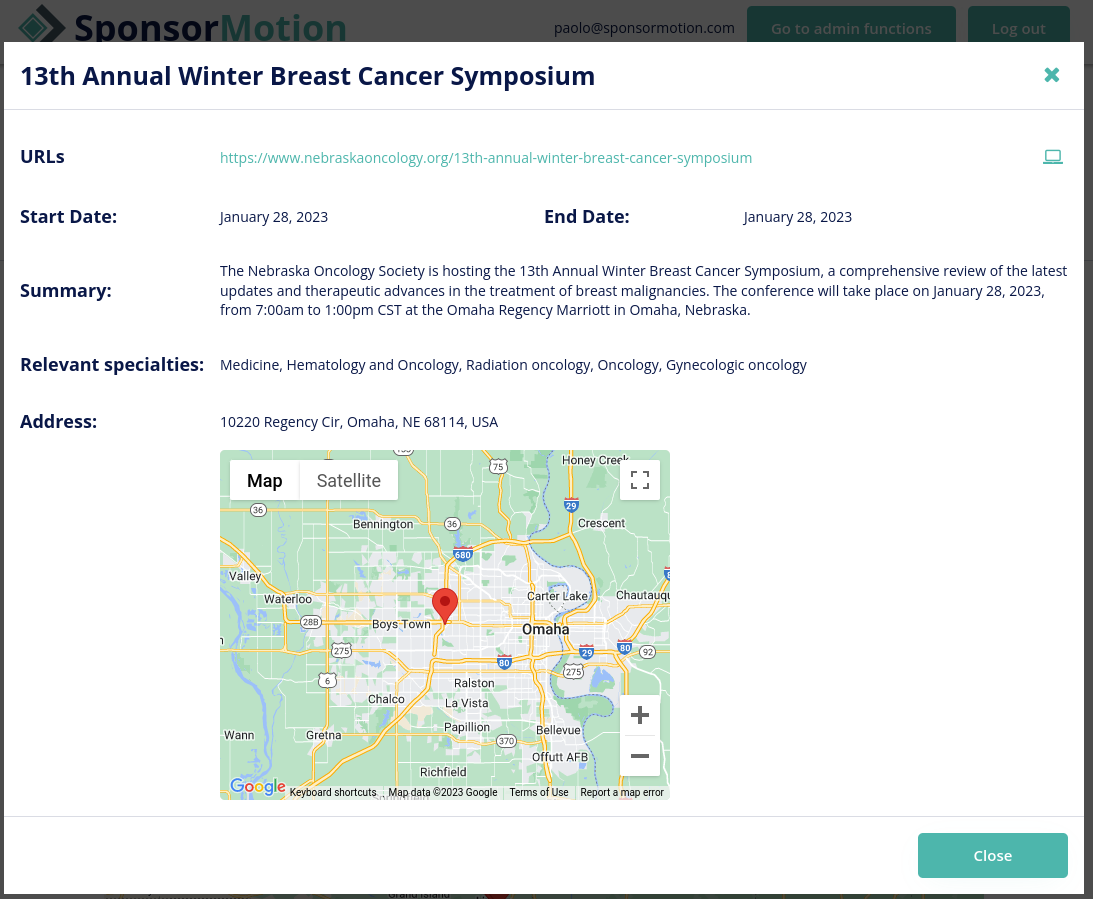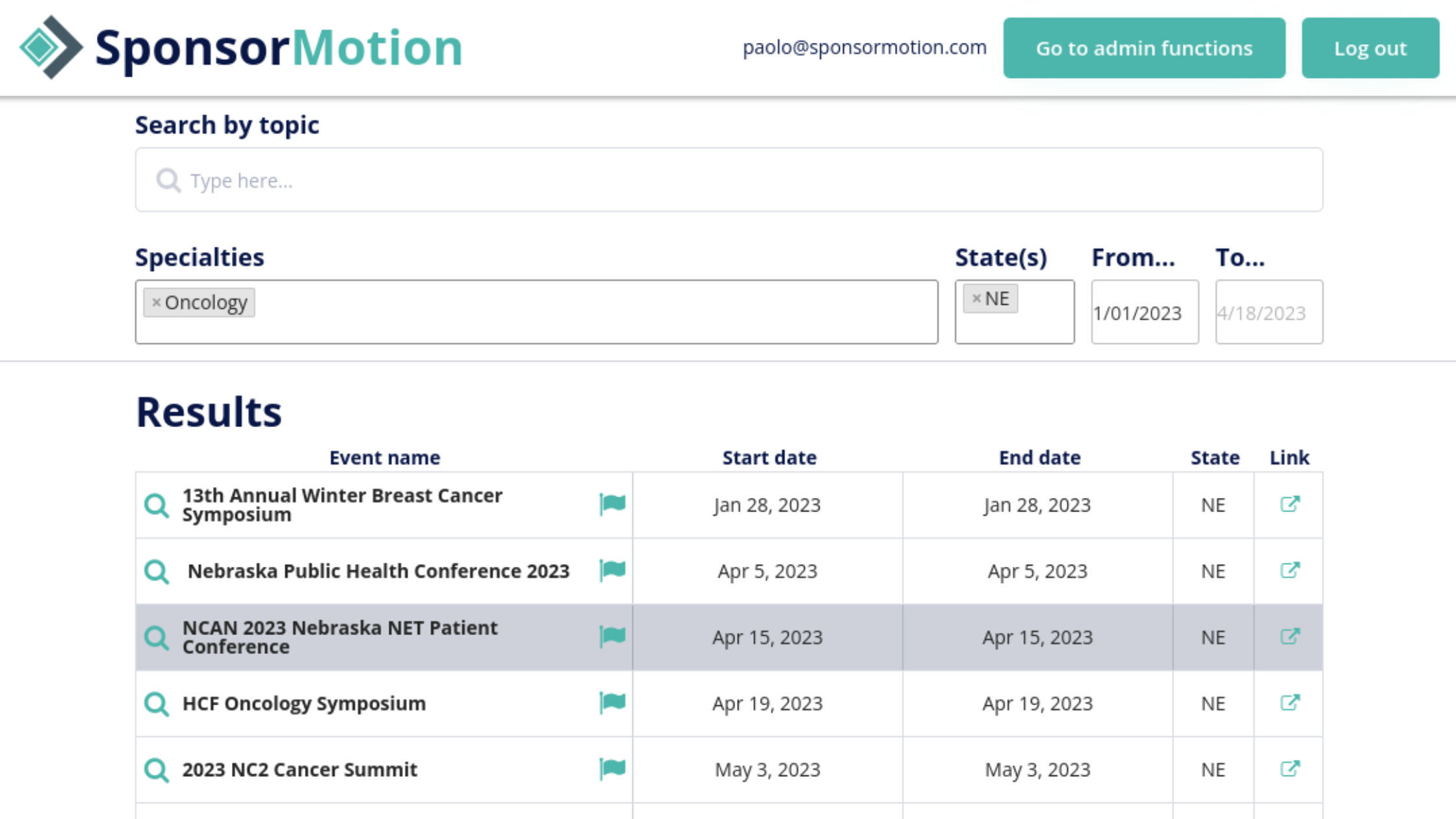A search engine for events? Why?

I recently realized that I spent quite a bit of time writing about the consulting side of our business - how it started, the work we're doing with Kroger and NASCAR, and how we're helping them connect with health and wellness brands.
I've written much less about the data side of what we're building, so here we go.
Imagine a Regional Business Director from a biotech company building or reviewing a territory engagement plan. Let's say she's in the middle of QBR preparation, getting ready to discuss her team's plan with the VP of sales. To do this, she needs to capture events in Nebraska where she needs her team to be.
The problem with search engines
So, our RBD opens up Google, or Bing. And this is what she sees:

Let’s dissect it a bit.
- Events are mixed with other stuff: She can spot a page of the Nebraska Oncology Society here, a link to ASCO Nebraska there, and a link to a Facebook page operated by the American Cancer Society of Nebraska close to the bottom. Which ones should she look into?
- There is little event-specific information: Let’s focus on the two events of the Nebraska Oncology Society - the Winter Breast Cancer Symposium and the Mid-Year Review. When are they taking place? Is the mid-year review an actual meeting about cancer? Search engines provide snippets of pages - she'll need to browse each linked website to gather even basic information such as dates and exact locations. That’s some significant time.
- Too many results: Search engine results can often be overwhelming. They often present data in an “infinite scroll” format. The page never ends - relevance slowly declines until she's looking at random events in Nebraska mixed with cancer events in California. She'll need to spend significant time and effort to sift through the results, and she'll never know when she's done.
- Lack of focus on your customers: Are these events targeting, or meant for, oncologists? Again, time. She'll need to visit every single page.
That's why we decided to build our search engine: I witnessed that frustration first-hand, first when leading marketing ops in a biotech company and then again when I transitioned to managing unbranded marketing. Field teams spend a lot of time looking for events to go to, time they could spend selling. And they can never be sure that they have found everything.
Don't get me wrong. Google and Bing are amazing tools. With vast databases and powerful algorithms, they give us access to immense amounts of knowledge and data. However, they are not built to generate lists: their purpose is to sell ad spaces. They are not engineered to provide structured, comparable information.
The SponsorMotion search engine
Here is what she would find on our platform instead.


Now, she has her list. In minutes, not hours. And she is much less likely to be surprised by her leadership when they ask her how confident she is that she left no stone unturned.
That's why we built it.
Next time, I'll talk about why we designed it the way we did. And let me know if you'd like to book a demo!


